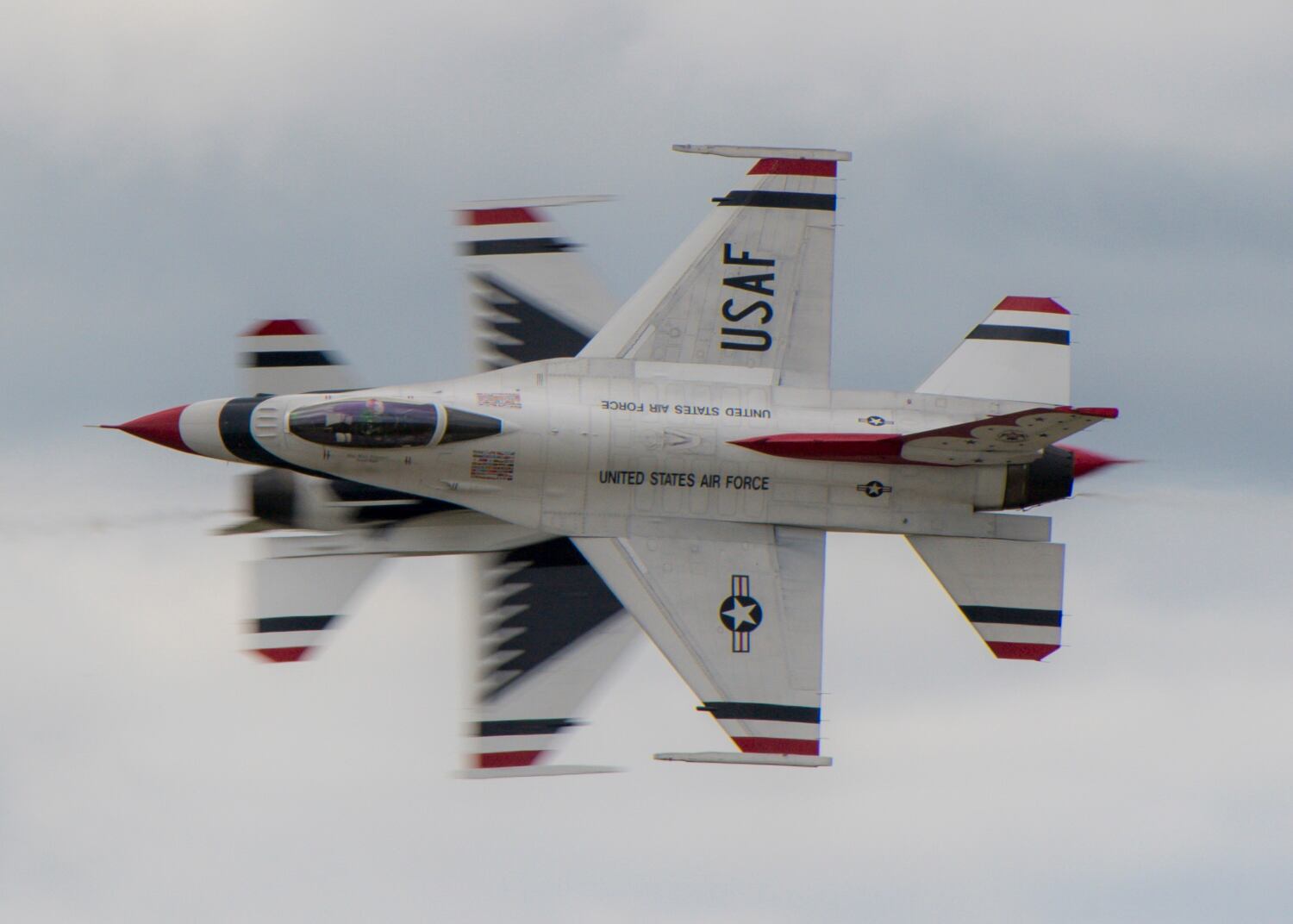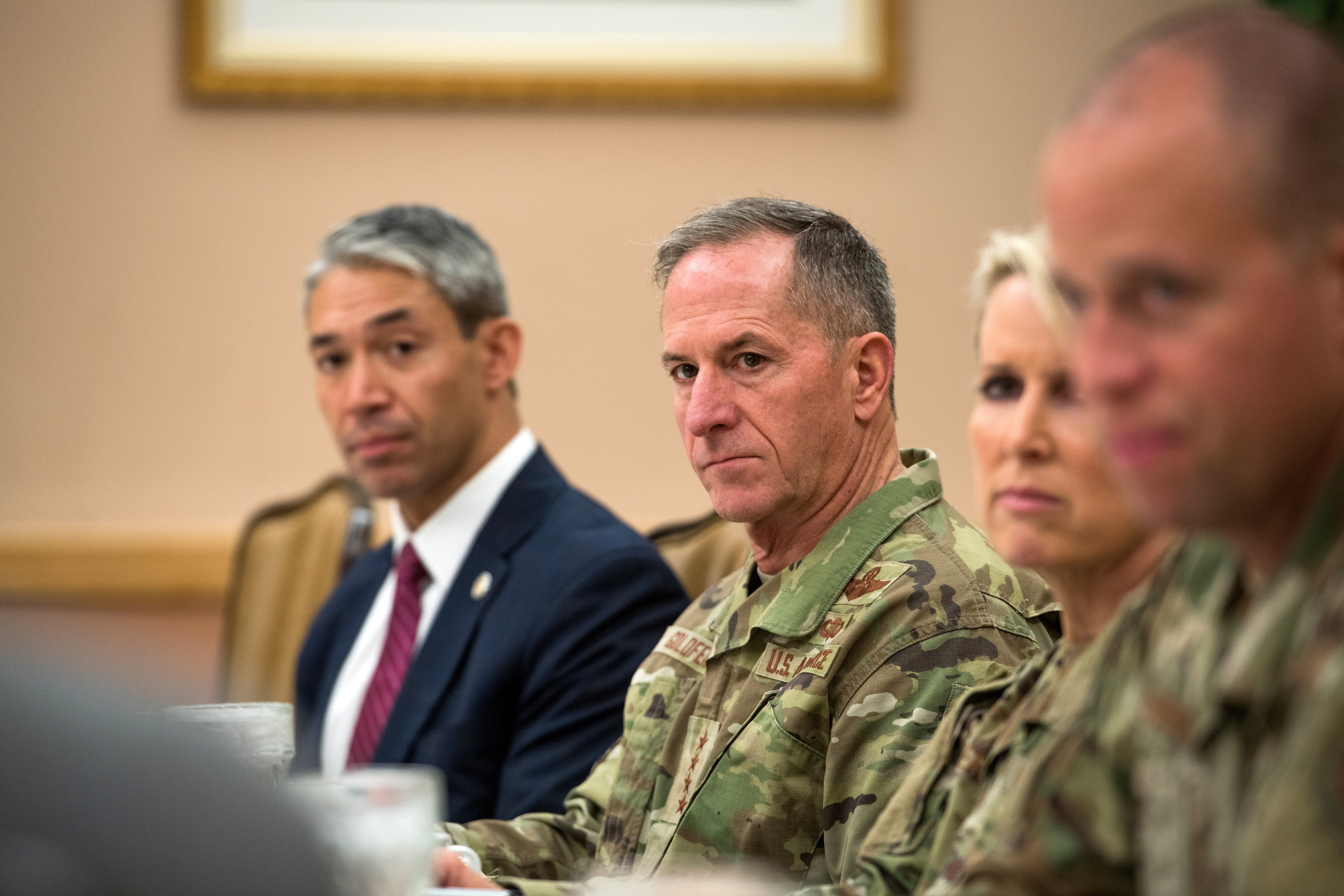EDITORS NOTE: This story originally reported that Officer Training School said on its Facebook page that it was pausing operations due to a possible case of COVID-19 on its campus. That Facebook post was later taken down. Air Education and Training Command said March 17 that it was made in error, and OTS operations never paused.
The Air Force Academy in Colorado Springs on Friday said it will dismiss a large segment of its 4,000 cadets due to concerns about the spread of COVID-19 on campus.
And Chief of Staff Gen. Dave Goldfein this week traveled to Joint Base San Antonio-Lackland in Texas to meet with officials, including the mayor of San Antonio, about the base’s coronavirus response.
These are some of the latest steps taken by Air Force installations as concerns grow about the spread of the novel coronavirus, which has been declared a worldwide pandemic by the World Health Organization.
The academy said that “multiple members of our base populace” are being monitored for coronavirus, which led to the decision to conduct an “orderly dismissal.” The academy did not immediately respond to questions about how many cadets would be dismissed, and how the cadets would return home or to other locations.
The academy said that did not make the decision lightly, and consulted beforehand with medical professionals, other military service academies, and local civic leaders.
RELATED

But the academy concluded that with 4,000 cadets on campus, it would not be possible to separate them all to the degree necessary to prevent coronavirus from spreading.
“The goal of this action is to maximize the chances of graduating our senior class on time for our Air and Space Forces while ensuring the best possible care for the entire base populace,” the academy said. “Ultimately, the deciding factor was recommendations from our public health officials and the inability to execute social distancing over 4,000 cadets here on campus.”
Air Education and Training Command also said Wednesday that San Antonio Military Health System officials had begun screening recruits arriving at Basic Military Training for COVID-19.
This is in addition to the screening done when new recruits arrive at Military Entrance Processing Stations, or MEPS, Kiley Keenzel, head of public affairs for the 59th Medical Wing at Joint Base San Antonio-Lackland said in an email Friday morning.
When recruits arrive, they are now being asked a series of questions to figure out whether they may have been exposed to COVID-19, Keenzel said. Those questions include whether the recruit recently traveled internationally, whether they know of any close contact with someone known to have COVID-19, and symptoms of lower respiratory illness, such as a cough, difficulty breathing, or shortness of breath.
If a recruit meets any of those criteria, Keenzel said, they will be removed from the pipeline and put in a separate room to be seen by a military health professional. They may be isolated and tested for influenza or COVID-19.
Goldfein also visited Lackland on Wednesday to observe operations involving COVID-19. In a Thursday release, Goldfein said he wanted to focus on how effective the base, the Health and Human Services Department, and the city of San Antonio were working together, and to learn what they need.
“I have one objective while I’m here: To be a very good listener,” Goldfein said. “I want to go back to Washington and be able to advocate on your behalf.”
San Antonio Mayor Ron Nirenberg and Brig. Gen. Laura Lenderman, commander of Joint Base San Antonio and the 502nd Air Base Wing, were among the officials who met with Goldfein.
Dawn Goldfein, Gen. Goldfein’s wife, and medical experts also met with the key spouses at Lackland to find out what issues military families were facing, and address their concerns about COVID-19 evacuees now being housed on the base.
The Air Force also said Friday that its School of Aerospace Medicine’s epidemiology laboratory, located at Wright Patterson Air Force Base in Ohio, has begun receiving potential COVID-19 samples from military treatment facilities around the world.
Military treatment facilities collect samples in accordance with CDC guidelines, and then send them to the epidemiology lab or other local public health lab to conduct the CDC-approved test. Any presumptive positive test is then confirmed by the CDC, the Air Force said.
The Air Force’s epidemiology laboratory enters all information from the tested samples into the appropriate medical system for medical decision making, the Air Force said, and sends daily updates to the Defense Health Agency for oversight.
Stephen Losey is the air warfare reporter for Defense News. He previously covered leadership and personnel issues at Air Force Times, and the Pentagon, special operations and air warfare at Military.com. He has traveled to the Middle East to cover U.S. Air Force operations.





